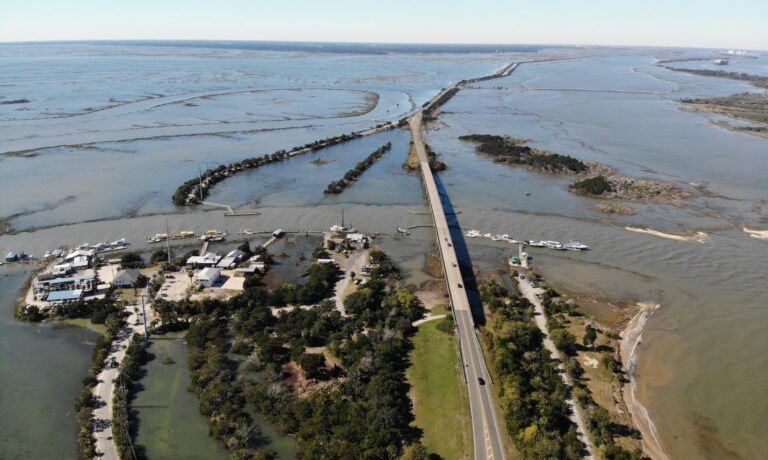Science is fundamental to life-improving innovation, medical care, and our ability to make well-informed decisions that serve the common good. Ongoing impairment of its use in human health, environmental protection, and sustainable innovation is deeply troubling.
Among a deluge of disruptive actions dismantling federal programs are radical cuts in federal funding for scientific research, threatening a broad array of disturbing consequences. These spending reductions are being made using the pretext of eliminating fraud, inefficiencies, and waste, yet no standards for making such determinations have been provided.
Hundreds of billions in reductions for science-based programs in the Trump budget proposal will impair critically important applications of science at the Centers for Disease Control, EPA, the National Institutes of Health, and the National Oceanic and Atmospheric Administration, among many other Congressionally-mandated programs, all created to serve the public interest.
Most Americans may not be aware that our notion of individual rights originated in the 18th century during the Enlightenment. Historians agree that the Enlightenment resulted due to transformative influences of the Scientific Revolution, based on empirical evidence and verifiable use of the scientific method, advancing reverence for facts. Notably, applying facts to determine shared public interests also provides an effective bulwark against the abuse of power by supporting legal actions against such abuses and penalizing them through justice rendered in court.
We now face treacherously subversive forces seeking to discredit science, facilitating a reversion to ‘pre-enlightened’ conditions, enabling those in power to fabricate a reality that coerces compliance with their exploitative objectives. Some speculate that injustices caused by the concentration of wealth and political power – currently at an historic maximum – will be far worsened by efforts to manipulate Artificial Intelligence in willfully distorting the public’s perception, thereby reducing resistance to a reality fabricated with false partisan claims.
Throughout the world, as chemical pollution and waste accumulate, and as temperatures soar, scientists are urging governments to support a new United Nations initiative. Under this U.N. proposal, a science-policy panel is focusing on solutions needed to achieve systemic change that will be essential to sustaining human health and the environment, upon which it depends.
The U.N. initiative makes it clear that humanity’s future will depend on transparency, a broadly responsive global network of participants, and diverse support for new scientific methodologies. Current trends in U.S. policies – epitomized by the controversial Congressional budget bill – directly conflict with these U.N. principles for advancing the use of science to resolve challenging human problems. Scientists warn that unchecked pollution and life-threatening waste will amplify and propagate unless rapid, well-coordinated action is taken to strengthen protective measures.
These concerns have direct, pragmatic relevance to issues here in coastal Georgia. Recent articles summarizing Emory University investigation of serious risks to human health caused by industrial contamination in Brunswick underscore the heedless injustices created by billions in proposed EPA program reductions. Emory researchers found toxic chemicals in the bloodstreams of residents exposed to industrial contaminants carried by air and water from areas designated as hazardous Superfund sites. Unless sufficient EPA funds are provided, decades of human suffering caused by negligent industrial operations will remain inadequately examined, poorly controlled, and callously unresolved.
More than four decades ago, the Superfund program was created by Congress to clean the nation’s most contaminated sites to protect the environment and people – often those living in low-income communities of color, including at least sixteen locations across Georgia. Although EPA is supposed to restore properly detoxified sites for other uses, contaminants leaked from Brunswick industrial sites dangerously persist – often with worsening accumulation – in locally-caught fish, groundwater, and in the bodies of local residents.
Drastic cuts in federal expenditures for vital EPA services will harm both human health and the environment of Georgians as well as all other Americans. Hundreds of billions in U.S. budget reductions will also signal brazen defiance of long-proven scientific principles applied by respected American institutions, impairing urgently needed improvements worldwide through efforts such as the UN panel on science policy.
Moreover, in recklessly weakening science programs and throttling their benefits through budget cuts, the U.S. will also profoundly damage our capacity to use research and corresponding application of facts in honoring the rule of law, which is vital to supporting human rights.
These rights include protection of our citizens against negligent practices of irresponsible corporations, who must be held accountable for the suffering and damage caused by their polluting operations. The long-overdue justice required to correct this callous negligence, and to prevent further harm, cannot be achieved without the disciplined use of science. Environmental quality, public health, and economic stability will be severely endangered if proposed federal budget reductions are adopted.
The Center for a Sustainable Coast urges citizens to contact U.S. senators and to speak out publicly, insisting that our critical science-based programs – and other federal activities serving vital human needs – are fully funded instead of lavishing trillions of dollars in unjustifiable tax breaks on the wealthiest Americans who have ever lived.


